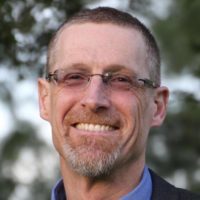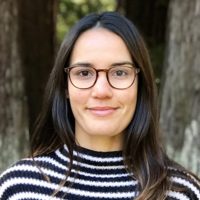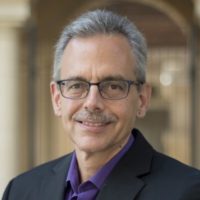Economías Inclusivas en Ciudades de Colombia (Inclusive Economies in Colombian Cities)
August 10, 2017
Meeting Purpose and Goals
Colombia is a nation that has been wracked by high levels of inequality and decades of violence. In recent years, however, the country seems to have reached a turning point in which peace is being achieved, displacement is being addressed, and inclusion is a clearer goal. Cities are in a unique position to lead the charge in the country’s work towards greater inclusion as hubs of global innovation, power, and opportunity. In recognition of this, we partnered with Fundación Corona and Red De Ciudades Cómo Vamos (RCCCV) to explore related aspects of inclusion in Colombian cities. To do so, we drew data from RCCCV and applied the Inclusive Economies framework across the five largest cities in Colombia: Bogotá, Medellin, Cali, Cartagena and Barranquilla. Three key questions were addressed in the workshop in Colombia: What drivers help shape inclusion (or exclusion) in Colombian cities? How can this conceptual framework and indicators help catalyze change towards greater inclusion in Colombia? What key insights and lessons can other nations draw from Colombia’s narrative?
Agenda (en español)
Agosto 10, 2017
7:30 am Llegada y registro de participantes
8:00 – 8:15 am Bienvenida y contexto de la reunión por Mónica Villegas Carrasquilla, Gerente de Proyectos, Fundación Corona
8:15 – 9:15 am Presentación: Marco conceptual de Economías Inclusivas por Manuel Pastor, Director, USC Programa del Ambiente y Equidad Regional (PERE) y Gabriela Giusta, Especialista en investigación, UCSC Programa Everett
9:15 – 10:00 am Presentación: Reacciones sobre el marco conceptual por Manuel Riaño, Consultor independiente y Jorge Hernán Cárdenas, Director, Oportunidad Estratégica
10:00 – 10:45 am Preguntas y discusión: Reacciones del público
10:45 – 11:00 am Descanso
11:00 – 12:30 pm Mesas de trabajo con expertos en indicadores
12:30 – 2:00 pm Almuerzo y cierre
Organizers

Chris Benner •
Bio
Dr. Chris Benner is the Dorothy E. Everett Chair in Global Information and Social Entrepreneurship, Director of the Everett Program for Technology and Social Change, and a Professor of Environmental Studies and Sociology at the University of California, Santa Cruz. His research examines the relationships between technological change, regional development, and the structure of economic opportunity, focusing on regional labor markets and the transformation of work and employment. He has authored or co-authored six books and more that 70 journal articles, chapters and research reports. His most significant books include: Equity, Growth and Community (2015), which examines diversity and dynamics of regional knowledge communities, and their relationship to social equity and economic growth; Just Growth (2012) which helps uncover the subtle and detailed processes, policies and institutional arrangements that help explain how certain regions around the country have been able to consistently link prosperity and inclusion; This Could Be The Start of Something Big (2009) which examines new regional movements around community development, policy initiatives, and social movement organizing; and Work in the New Economy (2002), an examination of the transformation of work and employment in the information economy. He received his Ph.D. in City and Regional Planning from the University of California, Berkeley.
Executive Director
The Everett Program

Gabriela Giusta •
Bio
Gabriela Giusta is a researcher at the Everett Program at the University of California, Santa Cruz. Her expertise stems from experience in quantitative and qualitative research, evaluation instruments and procedures, data collection and analysis, and reporting that provides valuable input on strategic directions and surfaces meaningful lessons. She has conducted research on sustainable development in the Global South and regional equity in the United States. She helped pioneer the work on Inclusive Economies, making significant contributions to the work in Colombia, India and the U.S. She has co-authored and contributed to several publications including: Inclusive Economy Indicators: Framework and Indicator Recommendations, Post-conflict Colombia: Inclusive Economies and Urban Development, Market Value: How Fair Assessment of California’s Commercial Property Values Would Likely Affect Land Use, Urban Development and the Economy, and Still Walking the Lifelong Tight Rope: Stabilizing Employment and Livelihoods in a Volatile Economy.
Before joining the Everett Program, Ms. Giusta worked for a forest conservancy in Peru exploring the interlinkages between conservation and poverty reduction strategies. She has served the wider global community through her volunteer work with Yazidis in Iraq, the Amah Mutsun native tribe in the U.S., and a journalist coalition in the UK. Ms. Giusta holds a master’s degree in development economics from the University of Göttingen in Germany and a bachelor’s degree in environmental economics from the University of California, Berkeley.
Research Specialist
The Everett Program

Manuel Pastor •
Bio
Dr. Manuel Pastor is Professor of Sociology and American Studies & Ethnicity at the University of Southern California. He currently directs the Program for Environmental and Regional Equity (PERE) at USC and USC’s Center for the Study of Immigrant Integration (CSII). Pastor holds an economics Ph.D. from the University of Massachusetts, Amherst, and is the inaugural holder of the Turpanjian Chair in Civil Society and Social Change at USC. His research has generally focused on issues of the economic, environmental and social conditions facing low-income urban communities – and the social movements seeking to change those realities. Some of his most recent publications include: Equity, Growth, and Community: What the Nation Can Learn from America’s Metro Areas, a book co-authored with Chris Benner (UC Press 2015); and Unsettled Americans: Metropolitan Context and Civic Leadership for Immigrant Integration, a book co-edited with John Mollenkopf (Cornell University Press 2016). His forthcoming book, State of Resistance: What California’s Dizzying Descent and Remarkable Resurgence Means for America’s Future, is to be released in April 2018. In January 2002, he was awarded a Civic Entrepreneur of the Year award from the California Center for Regional Leadership. He currently serves as a Public Member of the Strategic Growth Council in California, and has previously served as a member of the Commission on Regions appointed by California’s Speaker of the State Assembly, and as a member of the Regional Targets Advisory Committee for the California Air Resources Board. Pastor received the Liberty Hill Foundation’s Wally Marks Changemaker of the Year award for social justice research partnerships in 2012. In 2017, he received the Champion for Equity Award from the Advancement Project for his work with community-based organizations fighting for social change.
Executive Director
Program for Environmental and Regional Equity

Magaly N. López •
BioMagaly N. López is a Research Analyst at the UCLA Labor Center. Her expertise stems from experience designing research and evaluation instruments and procedures, executing quality data collection and analysis, and reporting that surfaces meaningful learning and informs future strategy. She has conducted research on Hometown Associations and economic development policy in Mexico, day laborer workforce development in the U.S., construction work in New Orleans post-Katrina, and undocumented children in mixed-status households in New Mexico. She has co-authored and made significant contributions to several publications including: Opening Minds, Opening Doors, Opening Communities: Cities Leading for Immigrant Integration, Rock the (Naturalized) Vote II and Removing Barriers to Postsecondary Success for Undocumented Students in Southern New Mexico.
Prior to joining the Labor Center, López was a data analyst at the USC Program on Environmental and Regional Equity (PERE) and the Center for Study of Immigrant Integration (CSII). In this role, she focused her work on immigrant integration and social-movement building and led the California Community Foundation (CCF) Council on Immigrant Integration, a committee designed to build alliances across sectors and tackle policy development in the greater Los Angeles.
López was raised running a family-founded Hometown Association and has since continued to find ways to serve her community through a leadership development and higher education prep program in her hometown, Salinas. Currently, she is the Director of the Public Policy and International Affairs (PPIA) Southern California Alumni chapter. López holds a Master’s degree in Public Policy and Bachelor’s degree in International Development Studies and Spanish from UCLA.
Research Analyst
UCLA Labor Center
Participants
- María Claudia Peñas Arana, Cartagena Cómo Vamos
- Luis Fernando López Pineda, Cartagena Cómo Vamos
- Piedad Patricia Restrepo Restrepo, Medellín Cómo Vamos
- Natalia Escobar Santander, Manizalez Cómo Vamos
- Alejandro Barrera Escobar, Manizalez Cómo Vamos
- Verónica Trujillo Gedeón, Santa Marta Cómo Vamos
- Freddy de Jesús Batista, GarcíaSanta Marta Cómo Vamos
- Yany Lizeth León Castañeda, Bucaramanga Cómo Vamos
- Alexandra Cortés Aguilar, Bucaramanga Cómo Vamos
- Johan Fernando Suárez Fajardo, Bucaramanga Cómo Vamos
- Carlos Alberto Salazar Villalba, Ibagué Cómo Vamos
- Carlos Barrios, Ibagué Cómo Vamos
- Mariluz Ramírez Ramírez, Aburrá Sur Cómo Vamos
- Jenny Marcela Melo Velasco, Aburrá Sur Cómo Vamos
- Mario de Jesús Zambrano Miranda, Cúcuta Cómo Vamos Cúcuta
- Marvin Fabio Mendoza Martínez, Cali Cómo Vamos
- Jefferson Danilo Rua Úsuga, Cali Cómo Vamos
- Juan Camilo Rave Restrepo, Pereira Cómo Vamos
- Rocío del Carmen Mendoza Manjarrés, Barranquilla Cómo Vamos
- Andrés Mauricio Vargas, Barranquilla Cómo Vamos
- Juan Manuel González Narvaez, Red Colombiana Ciudades Cómo Va
- Saluma Castillo Guerra, Consultora
- Juan Carlos Camelo, Sabana Centro Cómo Vamos
- Jorge Hernán Cárdenas, Lector
- Manuel Riaño, Lector
- Jaime Andrés Aguirre, DANE
- Jaime Alejandro Urrego, FINDETER
- Mauricio Romero, Invest in Bogota
- Oscar Ismael Sánchez, DNP – Coordinador de Seguimiento Terri
- Adriana Castro González, DNP – Secretaría Técnica Comisión ODS
- Natalie Gómez, DNP
- María Clemencia Castellanos, DNP
- Fernando Guzmán, Asocapitales
- Enrique Bayer, Universidad de la Sabana
- Jaime Torres, Veeduría Distrital de Bogotá
- Richard Ernesto Romero, Secretaría Distrital de Integración
- Libia Hernandez, Secretaría Distrital de Ambiente
- Shirley Andrea Zamora, Secretaría Distrital de Ambiente
- Alejandro Cáceres, PNUD
- Oliverio Huertas, PNUD
Resources
Location
The convening was held at Pontifica Universidad Javeriana in Bogotá, Colombia.




